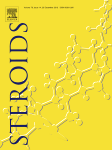Weight Loss & Nutrition Counseling Literature Review
Our nutrition counselors read a variety of rigorous scientific studies across academic journals to develop our approach to weight loss. Analyzing each article, finding connections between scholarly works, and ultimately turning these data into knowledge deepened our conviction that:
-
A high-protein, moderate-fat, low-carbohydrate diet is an effective diet that enables weight loss for a wide range of people
-
The quality of the food you eat is statistically correlated with weight gain/loss
-
Logging food intake and regular meetings with a nutrition counselor increase the probability of successful weight maintenance
Below we summarize the key journal publications that helped us develop OnPoint.
Diet Composition
Article Title: Energy of Dietary Composition on Energy Expenditure During Weight-Loss Maintenance
Authors and Publishing Journal: Ebbeling et al., JAMA (2012) Vol 307 No. 24: 2627-2634
Methods: 21 individuals (age 18-40) over a 12-week test phase
Results/Conclusions:
-
Those who consumed a very low-carbohydrate diet during weight loss maintenance maintained higher resting-energy expenditure (REE) and total-energy expenditure (TEE) levels
-
HDL and triglyceride levels were lowest in the very-low carbohydrate test group
-
Hunger scores did not significantly differ among the very-low carb, low-fat, and low-glycemic index test groups

Article Title: Changes in Diet and Lifestyle and Long Term Weight Gain in Women and Men
Authors and Publishing Journal: Mozaffarian et al., The New England Journal of Medicine (2011) Vol 364 No. 25: 2392-404
Methods: 120,887 US women and men from 1986-2006
Results/Conclusions:
-
Average weight gain for each cohort of observations was 3.35 lbs per 4-year period
-
Dietary factors associated with the largest positive associations with weight changes were potato chips, potatoes, sugar-sweetened beverages, unprocessed red meats, and processed meats
-
Inverse relationships with weight gain were seen for vegetables, whole grains, fruits, nuts and yogurt
-
Researchers suggest that the negative correlation between high fiber foods and weight gain is caused by slower digestion, and results in higher satiety and eventual displacement of more highly-processed foods

Article Title: Effect of an Energy-Restricted, High-Protein, Low-Fat Diet Relative to a Conventional High-Carbohydrate, Low-Fat Diet on Weight Loss
Authors and Publishing Journal: Noakes et al., American Journal of Clinical Nutrition (2005) Vol 81: 1298-306
Methods: 100 women (age 40-60) over a 12-week period
Results/Conclusions:
-
Each group, a high-protein (HP) and high-carbohydrate (HC) lost significant amount of weight versus their starting level
-
There was no significant difference in weight loss among the two groups, although women with high triglyceride levels lost more weight under the HP diet
-
Both diets resulted in significantly lower levels of LDL-cholesterol, HDL-cholesterol, glucose, insulin and free fatty-acids
-
The HP diet increased vitamin B-12 levels

Article Title: Weight Loss With a Low-Carbohydrate, Mediterranean, or Low-Fat Diet
Authors and Publishing Journal: Shai et al., The New England Journal of Medicine (2008) Vol 359 No 3: 229-41
Methods: 322 individuals (age 40-65) over a 2-year period
Results/Conclusions:
-
Individuals following a low-carbohydrate diet (no caloric cap) or Mediterranean diet (caloric cap) lost significantly more weight than those assigned to a low-fat diet, with the low-carb diet losing the most weight
-
HDL cholesterol levels increased the most in the low-carb group, while LDL levels did not change significantly within any of the groups
-
Blood pressure and insulin levels decreased in each test group, with the smallest decrease observed in the low-fat diet

Authors and Publishing Journal: McManus et al., International Journal of Obesity (2001) Vol 25: 1503-1511
Methods: 100 individuals (age 18-70) over an 18-month period
Results/Conclusions:
-
Individuals in the moderate-fat group, on average, lost more weight, had a greater reduction in percentage body fat, BMI, and waist circumference
-
The majority of weight loss took place in the first 6 months; weight loss was then maintained in the moderate-fat group, and regained in the low-fat group
-
Researchers hypothesize that sustained weight maintenance was due to frequent weight counseling and Mediterranean-based meal guide

Meal Timing
Article Title: Meal Timing, Appetite Scores, and Weight Loss Maintenance
Authors and Publishing Journal: Jakubowicz et al., Steroids (2012)
Methods: 193 individuals (age 20-65), over a 48 week period
Results/Conclusions:
-
People eating a low-carb breakfast (lcb) experienced more food cravings than those eating hi-carb, hi-protein breakfast (hcpb)
-
Both diet types experienced weight loss during the “dieting” period, but only the hcpb group experienced further weight loss during the maintenance period

Article Title: Timing of Food Intake Predicts Weight Loss Effectiveness
Authors and Publishing Journal: Garaulet et al., Intl Jrnl of Obesity (2013)
Methods: 510 adults (age 31-52), over a 20 week period, following a Mediterranean diet
Results/Conclusions:
-
Late lunch-eaters lost significantly less weight than early-eaters, beginning in the 5th week of study
-
This result occurred given equal energy intake and similar energy expenditure between the two groups

Article Title: Association Between Eating Patterns and Obesity in a Free-Living US Adult Population
Authors and Publishing Journal: Ma et al., American Journal of Epidemiology (2003)
Methods: 499 individuals (age 20-70) over a 52-week period
Results/Conclusions:
-
Number of eating episodes was inversely related to obesity (based upon average 3.92/day)
-
Skipping breakfast was associated with a significantly higher risk of obesity
-
Temporal distribution of meals throughout the day was not related to obesity
-
Eating breakfast and dinner away from the home was associated with higher rates of obesity, but not lunch

Article Title: Weight Loss With Meal Replacement and Meal Replacement Plus Snacks: A Randomized Trial
Authors and Publishing Journal: Poston et al., Intl Jrnl of Obesity (2005)
Methods: 100 individuals (age 35-55) over 24 weeks
Results/Conclusions:
-
No significant difference in weight loss between “snacking” and “non-snacking” groups over both a 12- and 24- week interval
-
Both groups showed improvements in systolic blood pressure, cholesterol, glucose, and insulin levels over the 12-week period

Article Title: Increased Meal Frequency Does Not Promote Greater Weight Loss
Authors and Publishing Journal: Cameron et al., British Journal of Nutrition (2010)
Methods: 18 individuals (age 18-55) over an 8 week period
Results/Conclusions:
-
No significant difference in weight loss between high-meal frequency (MF) and low-MF groups
-
No significant difference in appetite measures between the two test groups

Article Title: Meal Frequency and Energy Balance
Authors and Publishing Journal: Bellisle et al., British Journal of Nutrition (1997)
Methods: N/A: Journal Review
Results/Conclusions:
-
Many relationships between meal frequency and obesity become non-significant when adjusted for possible confounders
-
Difficulty in classifying participants’ meal frequency (due to under-reporting meals) make it difficult to determine statistically significant differences between test groups
-
Reverse-causality (skipping meals once the onset of obesity has occurred) can skew results
-
Review of 7 studies comparing nibbling v gorging regimens are inconclusive in regard to weight loss
-
Review of 5 studies comparing nibbling v. gorging regiments and energy expenditure show no significant differences between test groups

Portion Control
Article Title: Use of Portion-Controlled Entrees Enhances Weight Loss in Women
Authors and Publishing Journal: Hannum et al., Obesity Research (2004) Vol 12 No. 3: 538-546
Methods: 60 healthy women (age 24-60) over an 8-week period
Results/Conclusions:
-
Both the pre-packaged food group and the self-selecting meal group lost a statistically significant quantity of weight compared to starting levels; the pre-packaged group lost significantly more weight than the self-selecting group
-
Portion-controlled weight loss regimens using prepackaged entrees are both effective and acceptable on a short-term basis
-
The average weight loss in the portion-controlled group (12.5 lbs) was observed alongside significant reductions in fat mass, waist circumference, total cholesterol, and fasting insulin

Article Title: Reductions in Portion Size and Energy Density of Foods are Additive and Lead to Sustained Decreases in Energy Intake
Authors and Publishing Journal: Rolls et al., American Journal of Clinical Nutrition (2006) Vol. 83: 11-17
Methods: 24 women (age 19-45) over a 4-week period
Results/Conclusions:
-
Decrease in portion size and energy density of food were each independently associated with decreased energy intake of the entire meal
-
Decrease in energy density of food had a greater influence on reduction of meal energy intake
-
The combined effect of portion size and energy density within meals deceased overall energy intake by 32.4%. Although subjects were free to eat as much food as they desired, they chose to consume 1625 kcal less over 2-day test periods

